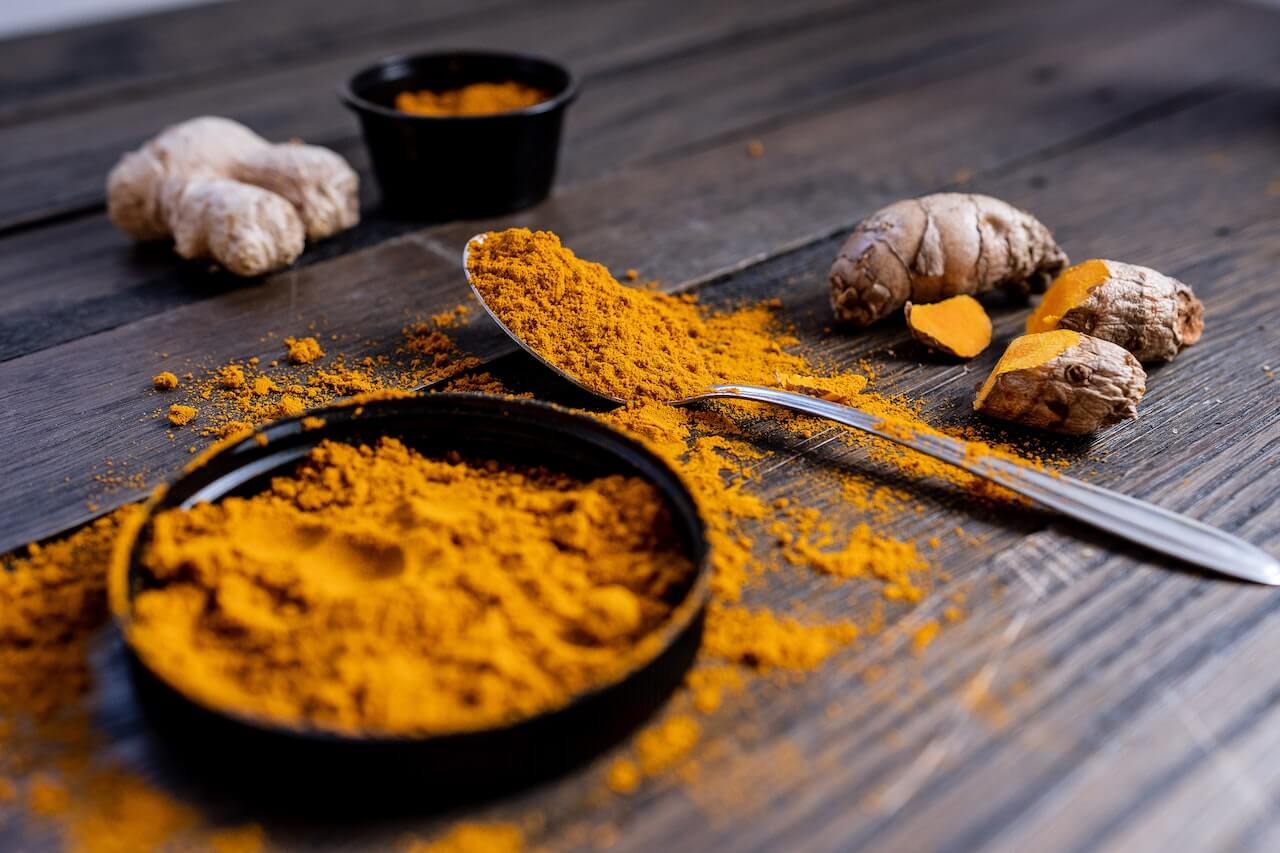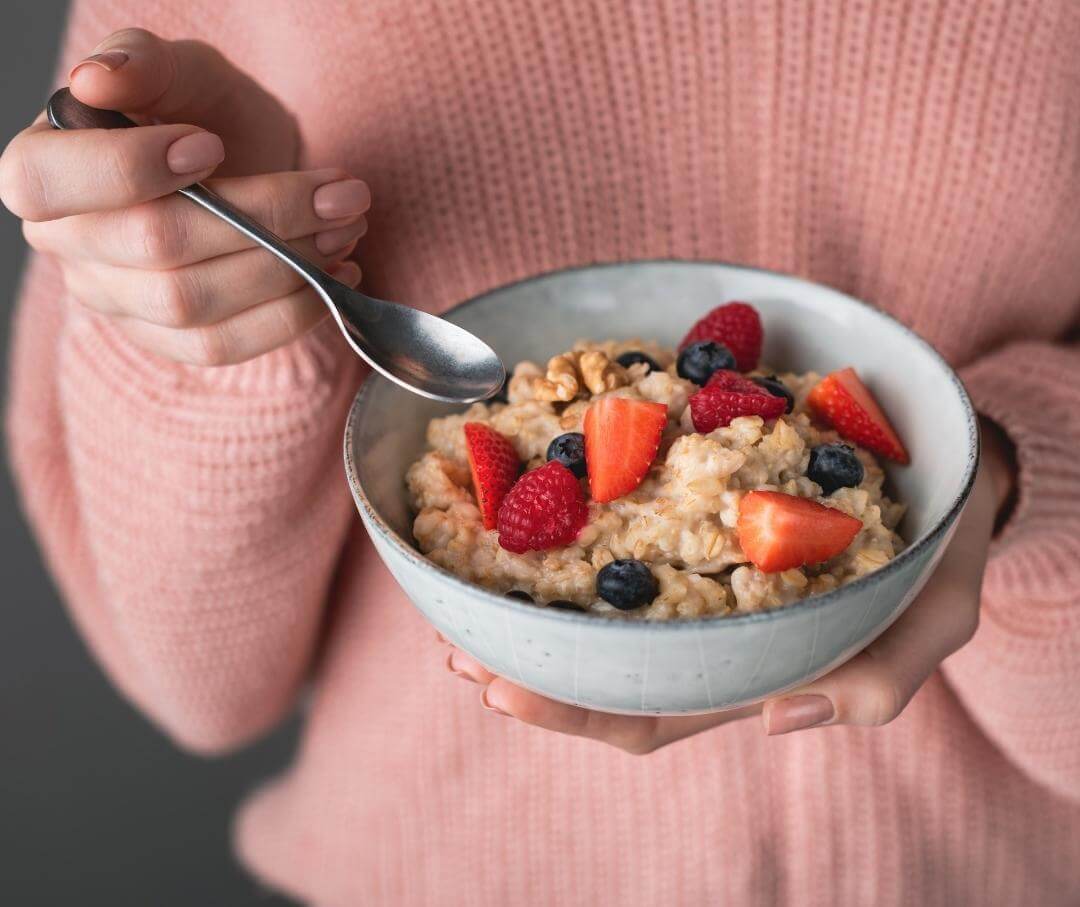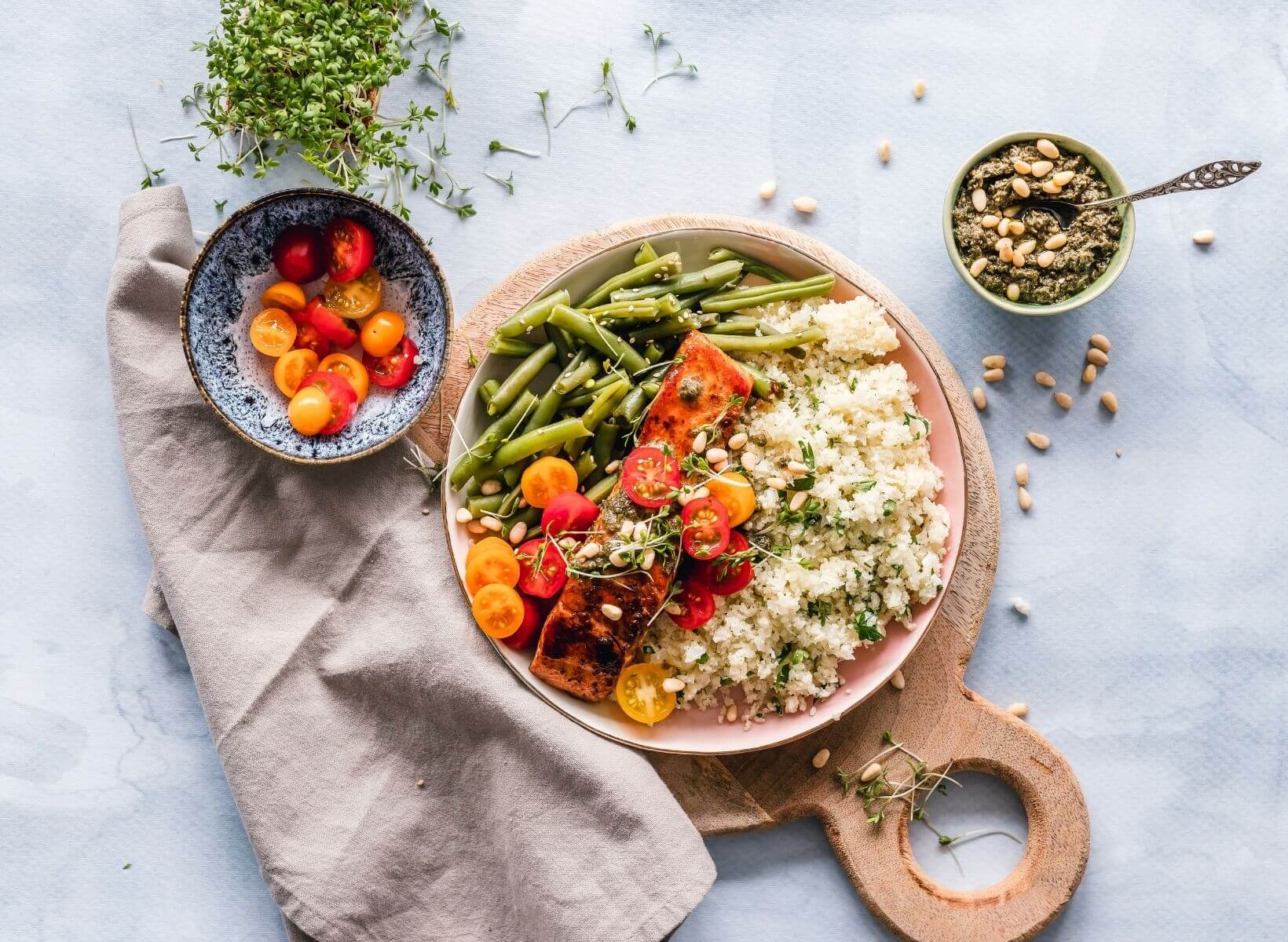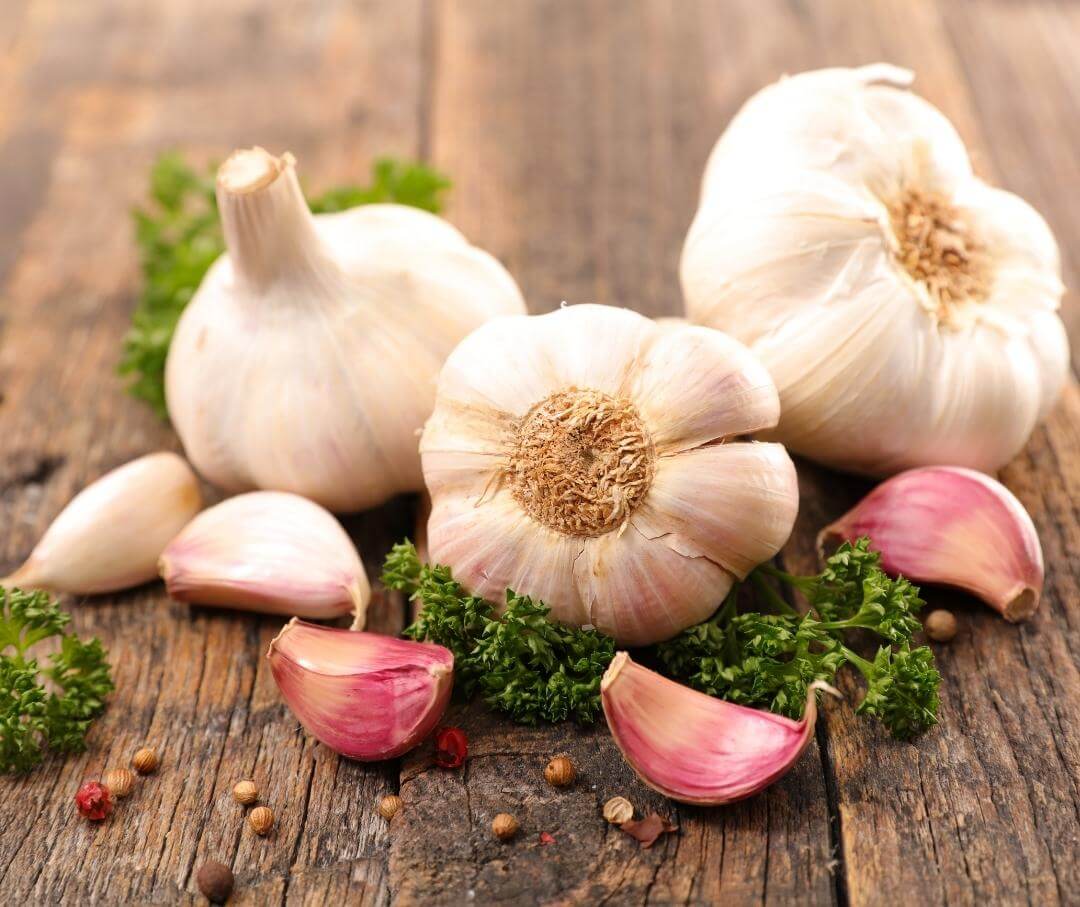Adjusting your diet could be a helpful strategy for people trying to lose weight. Although you could reduce your sugar or carb intake, you might wonder if adding something like turmeric is the boost you need. It might optimize your weight loss with its antioxidant and anti-inflammatory properties. Check out a few of these tips and benefits to discover why those things are so helpful and how to use turmeric for weight loss.
What Is Turmeric?
You can find turmeric at grocery stores and farmers' markets. It’s an eastern root most commonly used in Indian recipes, but it’s also shown some promise as a medicinal resource.
Turmeric has a lumpy exterior and orange inner flesh, so people often think it resembles sweet potatoes. They might look closely related, but turmeric is a spice, not a vegetable. You can use it powdered or diced in meals and beverages.
{{mid-cta}}
Turmeric and Insulin Resistance
Weight loss communities often reference turmeric as a dietary resource due to its link with insulin resistance. Insulin-resistant individuals aren’t able to produce or absorb insulin in their bloodstream.1 Without it, their blood sugar spikes after meals and snacks. The body stores the extra sugar in the bloodstream as fat, ultimately causing weight gain.
Research shows turmeric can help with insulin resistance. When people with Type 2 diabetes add turmeric to their diet, the antioxidant properties in the spice increase insulin secretion and sensitivity. Their bodies can produce the insulin necessary to process sugar, leading to fewer blood sugar spikes and less weight gain.2
Is Turmeric Good for Weight Loss?
Turmeric’s antioxidant powers ease your blood sugar levels by aiding insulin sensitivity. Without blood sugar spikes, your body can process sugar in your bloodstream without storing it as excess body fat.
Antioxidants also reduce cellular inflammation3, so eating more turmeric could reduce your digestive challenges by soothing your digestive tract4. As a result, your body would absorb nutrients more efficiently, improving your metabolic burn rate and boosting your weight loss.
What’s the Difference between Turmeric and Curcumin?
Curcumin is a chemical responsible for turmeric’s orange-yellow color and is a main component on the spice. When studied in randomized controlled trials, curcumin reduced participants’ body-mass index readings by causing weight loss.5
Curcumin can improve the functionality of hepatic lipid accumulation, which would reverse or reduce someone’s prediabetes diagnosis.6 It’s a powerful tool that regulates insulin and blood sugar levels, making it helpful for people trying to lose weight.
It also fights chronic inflammation — another influencing factor in weight gain. When the body remains inflamed, adipose tissue activates immune cells that trigger insulin resistance.7
Insulin resistance leads to weight gain due to unprocessed blood sugar turning into fat storage deposits. Without blood sugar spikes due to insulin resistance, your cells can burn fat instead of storing it.
Common Myths
Any Form of Turmeric Enhances Weight Loss
People commonly believe any form of turmeric causes weight loss, so should you try supplements, whole turmeric, or a combination? As long as your diet includes pure turmeric, your body can benefit from its antioxidant properties. Many supplements may include fillers, so you may want to opt for whole turmeric insteak.
If you do decide to take turmeric supplements, make sure to review the supplement’s ingredient list before consuming. The U.S. Food and Drug Administration has no legal authority to regulate dietary supplements.8 It’s up to consumers to research brands to ensure they aren’t injesting supplements with fillers that dilute the primary ingredient.
Turmeric Only Reduces Inflammation
This myth exists because turmeric often is associated with weight-loss-specific goals, but this spice serves other functions too. The curcumin in turmeric also improves metabolisms, reduces anxiety, and resolves digestive symptoms for individuals with conditions like Celiac and Hashimoto’s Disease.9,10
Turmeric Shots Can Replace Meals
People may believe turmeric shots or supplements can replace their primary meals. It is true that it is easier to absorb turmeric when your body doesn’t have to digest other nutrients simultaneously. However, you should never resort to extreme restriction of calories in any eating style.
Healthy, sustainable weight loss plans always include meals and snacks, so incorporating turmeric into your daily diet is safer than starving for extended periods. Your body will continue getting the nutrition it needs to thrive while benefiting from your increased turmeric intake.

6 Health Benefits of Turmeric for Weight Loss
Reduces Inflammation
Reducing your body’s inflammation is one of the primary benefits of turmeric. The spice’s antioxidants heal cells with oxidative stress. In doing so, turmeric reduces inflammation that might prevent bodily functions from aiding your weight loss journey.
Improves Metabolic Syndrome
Curcumin has favorable metabolic properties due to its chemical makeup.11 It also reduces the effects of metabolic disorders because it strengthens your metabolism.
You might enjoy this turmeric health benefit if you have a diagnosis like endometriosis. The spice could ease symptoms like fatigue and cramping while helping you lose weight.
Helps Detoxify the Body
When turmeric reaches your liver, it supports detoxification by eliminating inflammation in your liver cells.12 Your liver will work more efficiently and detoxify your bloodstream with less effort.
Suppresses Fat Tissue Growth
Curcumin gently increases your body’s insulin sensitivity, controlling blood sugar spikes during meals and snacks. With a minimal number of blood sugar spikes, your body could produce less fat tissue since your cells will processes sugar instead of storing it.
Offers Great Beauty Benefits
You could notice a natural glow in your skin if you eat or drink more turmeric. The spice reaches the bloodstream and sends antioxidants to your skin, allowing better cell regeneration and functionality.13
Boosts Brain Health
Turmeric’s metabolic properties might also aid the brain. An animal study found mice who digested turmeric extract had less aluminum-induced neurotoxicity after 45 days.14 Future human studies may have the same results, indicating that turmeric reduces the chance of neurodegenerative diseases. However, more reseach is needed in this area to make a definitive conclusion.
<p class="pro-tip"><strong>Check out this article for</strong> <a href="/blog/how-to-lose-water-weight">How to Lose Water Weight: 6 Ways To Prevent Water Retention</a>.</p>
Are There Any Side Effects to Turmeric Consumption?
Turmeric and curcumin are traditionally safe dietary additions because turmeric is a naturally occurring spice. Consuming between 500 to 2,000 milligrams (mg) of diced or powdered turmeric is the most common way to add this spice to your diet.15
It is highly recommended that you research suggested dosages if you increase your intake of supplements. Research shows turmeric supplements are 95 percent curcumin, compared to the 3 percent found in whole turmeric.16 Going beyond the recommended daily dose of turmeric could result in digestive or allergic reactions due to an overload of curcumin in your bloodstream. Turmeric side effects include symptoms such as:17
- Increased risk of bleeding
- Stomach pain
- Diarrhea
- Constipation
- Vomiting
- Abnormal heart rhythms
People with specific health conditions should talk with their doctor before adding turmeric to their diet. Anyone with a bleeding disorder or currently pregnant could have a higher risk of bleeding complications. Individuals with diabetes could also have increased sensitivity to turmeric due to their insulin resistance. Your doctor will identify the best dosage for your weight loss journey based on your sensitivity.
You should also speak with your doctor if you have an iron deficiency. High doses of turmeric can inhibit iron absorption, so it’s a riskier dietary addition for those with anemia.18
Turmeric can also be dangerous for people at risk of developing kidney stones. It can trigger an increased production of urinary oxalates, which can start kidney stone formation for those more susceptible.19
Turmeric Supplements vs. Root
Buying whole turmeric at the grocery store will give you less curcumin than a supplement. Turmeric supplements are typically 95 percent curcumin because manufacturers isolate the chemical to increase the supplement’s potency. Whole turmeric contains roughly 3 percent curcumin.15
Your body will experience its benefits either way. However, ingesting a potent amount of curcumin may cause it to pass through your urine since your body may not absorb it all while it remains in your digestive tract.
Research also shows the body processes turmeric more effectively when eaten with fatty foods. Natural fats contain lecithin, a phospholipid that improves cellular absorption abilities.20 Consider taking your chosen turmeric form with fatty foods like vegetable oils and eggs to absorb more of its powerful curcumin ingredient.
How to Choose a Supplement
If you’d like to take a turmeric supplement, research the brands that catch your eye. They should have transparent manufacturing explanations on their websites, commit to quality testing, and have the proper dosage for your health needs, as your doctor recommends. Call your medical provider or make an appointment before purchasing any supplements to make the best health investment possible.
Your chosen supplement should also include usage recommendations based on your desired daily dose and age. Some turmeric products may require taking your dose with food to promote absorption. Others may not if the companies didn’t research the spice thoroughly.
How to Use Turmeric for Weight Loss
There are numerous ways to use turmeric root daily. It might become your favorite cooking spice if you try recipes with turmeric. You could also add it to beverages or take supplements, depending on what you prefer for your daily routine.
The average daily dose of whole turmeric — whether you dice or grind it — is between 500 to 2,000 mg for adults.14 Always check the label on any purchased product and talk with your doctor to ensure you take the correct dose for your age and health conditions.
Remember, you may improve the effects of turmeric for weight loss by combining the spice with specific dietary additions. Fatty foods will enhance your body’s ability to utilize the added turmeric.19 You can also eat turmeric in recipes with additional black pepper because the capsaicin and piperine promote the transportation of solubilized nutrients.21
This is all in addition to a healthy diet that supports your weight loss goals. If you’re not eating enough calories to support your body’s vital organs, turmeric’s properties won’t help you reach your goals. Healthy food, rest, and exercise are essential for weight loss before and after adding turmeric to your diet.22,23,24

3 Recipes to Enjoy Turmeric and Enhance Its Benefits
If you think turmeric could be a great resource for your weight loss goals, consider trying these recipes:
- Berry breakfast smoothies: Greek yogurt and berries blended with turmeric
- Homemade apple juice: Juiced apples blended with turmeric
- Chicken quinoa soup: Low-fat quinoa, chicken, veggies, and turmeric
You can also try the following recipes for more traditional turmeric meals and drinks.
Golden Milk
Blend these ingredients to make two servings of golden milk. It’s an ayurvedic drink perfect for chilly mornings or cool evenings. After combining all of the below ingredients, warm the milk on the stove before enjoying it.
- 2 ½ cups of your preferred milk
- 1 stick of cinnamon
- 2 inches of whole turmeric sliced or 1 ½ teaspoons of turmeric powder
- 1 inch of whole ginger sliced or ½ teaspoon of ground ginger
- 1/2 teaspoon coconut oil
- A pinch of black pepper
- Optional: 1 tablespoon maple syrup, honey or your preferred weight-loss-friendly sweetener
Turmeric Ginger Tea
This is one of the best recipes with turmeric because it helps your body detox and leaves you with three leftover servings. Place all the ingredients in a pot of water, bring it to a boil, strain the water into a large container for storing leftovers, and enjoy a serving in your favorite mug.
- 1 ½ inch turmeric root, diced
- 1 ½ inch ginger root, diced
- 4 slices of lemon
- A pinch of black pepper
- 1/8 tsp coconut oil or ghee
- 4 cups of water
- Optional: your preferred sweetener to taste
Turmeric Chicken Curry
Start enjoying turmeric by making this chicken curry recipe. Season your chicken cubes with all the ingredients except the lemon juice. Cook on the stove until the chicken’s internal temperature reaches at least 165° Fahrenheit. Mix the cooked cubes with the lemon juice and plate them with your preferred sides.
- 2 teaspoons of extra-virgin olive oil
- 1 ½ pounds of boneless, skinless chicken breasts cut into ½-inch cubes
- 1 ¼ teaspoons of ground turmeric
- ¾ teaspoon of ground cumin
- ¾ teaspoon of kosher salt
- ¼ teaspoon of black pepper
- ½ of a lemon, juiced
- Optional: ⅛ teaspoon cayenne pepper
Learn More About Healthy Nutrition for Better Health with Signos’ Expert Advice
There are numerous benefits of turmeric you could start enjoying today, especially if you want to lose weight. This guide is one of many resources to enhance your eating habits and weight loss efforts.
<p class="pro-tip"><strong>Read more:</strong> <a href="/blog/foods-to-avoid-for-weight-loss-d">10 Foods You Should Avoid on Your Path To Weight Loss</a>.</p>
- Item 1
- Item 2
- item 3
Topics discussed in this article:
References
- Insulin resistance. Insulin Resistance - an overview | ScienceDirect Topics. (n.d.). Retrieved April 14, 2023, from https://www.sciencedirect.com/topics/medicine-and-dentistry/insulin-resistance
- Bozkurt, O., Kocaadam-Bozkurt, B., & Yildiran, H. (2022, November 7). Effects of Curcumin, a Bioactive Component of Turmeric, on Type 2 Diabetes Mellitus and Its Complications: An Updated Review. Food & Function. Retrieved April 14, 2023, from https://pubs.rsc.org/en/content/articlelanding/2022/fo/d2fo02625b/unaut
- García-Sánchez, A., Miranda-Díaz, A. G., & Cardona-Muñoz, E. G. (2020, July 24). The Role of Oxidative Stress in Physiopathology and Pharmacological Treatment With Pro- And Antioxidant Properties in Chronic Diseases. Oxidative Medicine and Cellular Longevity. Retrieved April 14, 2023, from https://www.hindawi.com/journals/omcl/2020/2082145/
- Tucker, F. (2013, October 8). Top 10 healing foods. Microhealth. https://www.microhealthllc.com/top-10-healing-foods/
- Akbari, M. (2019, June 12). The Effects of Curcumin on Weight Loss Among Patients With Metabolic Syndrome and Related Disorders: A Systematic Review and Meta-analysis of Randomized Controlled Trials. U.S. National Library of Medicine PubMed. Retrieved April 14, 2023, from https://pubmed.ncbi.nlm.nih.gov/31249528/
- Tshiyoyo, K. S. (2022, June 9). In-silico Reverse Docking and In-vitro Studies Identified Curcumin, 18α-Glycyrrhetinic Acid, Rosmarinic Acid, and Quercetin as Inhibitors of α-Glucosidase and Pancreatic α-Amylase and Lipid Accumulation in HEPG2 Cells, Important Type 2 Diabetes Targets. ScienceDirect. Retrieved April 14, 2023, from https://www.sciencedirect.com/science/article/abs/pii/S0022286022011486
- Wu, H., & Ballantyne, C. (2020, May 21). Metabolic Inflammation and Insulin Resistance in Obesity. AHA Journals. Retrieved April 14, 2023, from https://www.ahajournals.org/doi/10.1161/CIRCRESAHA.119.315896
- Center for Food Safety and Applied Nutrition. (2022, October 26). Questions and answers on dietary supplements. U.S. Food and Drug Administration. Retrieved April 14, 2023, from https://www.fda.gov/food/information-consumers-using-dietary-supplements/questions-and-answers-dietary-supplements
- Yuan, F. (2022, February 7). Turmeric and Curcuminoids Ameliorate Disorders of Glycometabolism Among Subjects With Metabolic Diseases: A Systematic Review and Meta-analysis of Randomized Controlled Trials. Pharmacological Research. Retrieved April 14, 2023, from https://www.sciencedirect.com/science/article/pii/S1043661822000664
- Shah, M. (2022, April 20). Multiple Health Benefits of Curcumin and Its Therapeutic Potential - Environmental Science and Pollution Research. SpringerLink. Retrieved April 14, 2023, from https://link.springer.com/article/10.1007/s11356-022-20137-w
- Jabczyk, M., Nowak, J., Hudzik, B., & Zubelewicz-Szkodzińska, B. (2021, December 11). Curcumin in Metabolic Health and Disease. Nutrients. Retrieved April 14, 2023, from https://www.ncbi.nlm.nih.gov/pmc/articles/PMC8706619/
- Lal, M., Samant, V., Khan, F., & Khan, A. (2022, August 7). The Use of Curcuma Longa (Turmeric) and Its Derivatives in the Treatment of Hepatic Disorders. IJPRA Journal. Retrieved April 14, 2023, from https://ijprajournal.com/issue_dcp/The%20Use%20of%20Curcuma%20Longa%20(Turmeric)%20and%20Its%20Derivatives%20in%20the%20Treatment%20of%20Hepatic%20Disorders.pdf
- Rosa de Mata, I. (2020, July 27). Benefits of Turmeric Supplementation for Skin Health in Chronic Diseases: A Systematic Review. Taylor & Francis Online. Retrieved April 14, 2023, from https://www.tandfonline.com/doi/abs/10.1080/10408398.2020.1798353
- Banji, D., Banji, O. J. F., & Srinivas, K. (2021, January 27). Neuroprotective Effect of Turmeric Extract in Combination With Its Essential Oil and Enhanced Brain Bioavailability in an Animal Model. BioMed Research International. Retrieved April 14, 2023, from https://www.hindawi.com/journals/bmri/2021/6645720/
- Maggi, F. (2022, June 24). Turmeric. Antioxidants Effects in Health. Retrieved April 14, 2023, from https://www.sciencedirect.com/science/article/pii/B9780128190968000070
- Stohs, S. J., Chen, O., Ray, S. D., Ji, J., Bucci, L. R., & Preuss, H. G. (2020, March 19). Highly Bioavailable Forms of Curcumin and Promising Avenues for Curcumin-based Research and Application: A Review. Molecules (Basel, Switzerland). Retrieved April 14, 2023, from https://www.ncbi.nlm.nih.gov/pmc/articles/PMC7144558/
- International Research Journal of Engineering and Technology. (2019, April 4). Benefits and Risks of Herbal Medicinal Plants. IRJET . Retrieved April 14, 2023, from https://d1wqtxts1xzle7.cloudfront.net/59886672/IRJET-V6I4101120190627-103249-vwwj24-libre.pdf?1561703879=&response-content-disposition=inline%3B+filename%3DIRJET_Health_benefits_and_possible_Risks.pdf&Expires=1681490928&Signature=Gkmnai-UFbSjhzteBFvAuWL0GR1QxQ-IB3QITUgZ-yL9uCRvJlDag~uRjXCmZT3WbgNcdWVwEqKuuQdOIkO1J0ZOmrgnUsNLoQwSD9fcMfTavP0HfHr3ZJfohZKReClMOSorYi~pwoa07yYgb97pNMYJVIaWbbvL4IRgCLJY0cbVLFk2B8y6~iZ4p0G52pu~hVZpmm2vd97nMmXI3PNRE9ohvaDkjT52PfjoorYMvYKqoQZY9fdV7gC0s879XkM~L8HFxscKj-9hXWNYmmKTjjXG4rv7~hV549~C0s6NPlVNe30snIpho-Qr5G6aDQ4jSPKRuBgzF1yUfAtLqE2btw__&Key-Pair-Id=APKAJLOHF5GGSLRBV4ZA
- Smith, T. J., & Ashar, B. H. (2019, January 9). Iron Deficiency Anemia Due to High-dose Turmeric. Cureus. Retrieved April 14, 2023, from https://www.ncbi.nlm.nih.gov/pmc/articles/PMC6414192/
- R, B. (2022, February 22). Turmeric: A Holistic Solution For Biochemical Malfunction. Research Journal of Pharmacy and Technology. Retrieved April 14, 2023, from https://www.indianjournals.com/ijor.aspx?target=ijor%3Arjpt&volume=14&issue=10&article=084
- Esmaeili, S. (2020). The Role of Lecithin on Topical Anti -Inflammatory Activity of Turmeric (Curcuma Longa L.) Ointment. Journal of Medicinal Plants. Retrieved April 14, 2023, from https://jmp.ir/article-1-2860-en.pdf
- Shilpa, S. (2021, October 17). Turmeric, Red Pepper, and Black Pepper Affect Carotenoids Solubilized Micelles Properties and Bioaccessibility: Capsaicin/Piperine Improves and Curcumin Inhibits Carotenoids Uptake and Transport in Caco-2 Cells. IFT . Retrieved April 14, 2023, from https://ift.onlinelibrary.wiley.com/doi/abs/10.1111/1750-3841.15926
- Cena, H., & Calder, P. C. (2020, January 27). Defining a Healthy Diet: Evidence for the Role of Contemporary Dietary Patterns in Health and Disease. MDPI. Retrieved April 14, 2023, from https://www.mdpi.com/2072-6643/12/2/334
- Carneiro-Barrera, A. (2019, January 4). Weight Loss and Lifestyle Interventions for Obstructive Sleep Apnoea in Adults: Systematic Review and Meta-analysis. Wiley Online Library. Retrieved April 14, 2023, from https://onlinelibrary.wiley.com/doi/abs/10.1111/obr.12824
- Petridou, A., Siopi, A., & Mougios, V. (2019, March). Exercise in the Management of Obesity. ScienceDirect. Retrieved April 14, 2023, from https://www.sciencedirect.com/science/article/abs/pii/S0026049518302270































